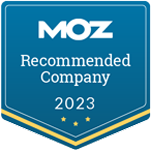By harnessing powerful artificial intelligence (AI) marketing tools, marketers gain predictive capabilities, forecasting consumer behavior enabling targeted advertising. But, as new and shiny as these advancements may seem, they cast a shadow of seemingly inevitable challenges. These include critical privacy concerns, misleading algorithm insights, and worryingly, a potential loss of the indispensable human touch in advertising. The question is, do the potential dangers of AI in advertising outweigh the benefits? Can 'smart' truly replace 'heart'? The answer lies in understanding the intricate dynamics between AI and marketing, and how to use AI for digital marketing, maintaining a balance between automation and human insights.
Loss of Human Touch
It's tempting to rely on AI marketing tools for efficiency, but beware. Overuse may lead to robot-like customer interactions, reducing the cherished human element. Remember those auto-generated emails or chatbot interactions that felt impersonal? That's a result of AI-driven, automated responses replacing human touch in customer service. This lack of personalization can potentially tarnish brand perception and wither customer loyalty.
Privacy Concerns
AI in digital marketing isn't all predictive analytics and targeted advertising. There's also a hidden risk – the invasion of privacy. AI's aggressive data collection practices can make users susceptible to data misuse and breaches. Think back to high-profile privacy violations like Facebook's Cambridge Analytica scandal. AI's scope reaches far, but it's pivotal to mount privacy safeguards to maintain user trust.
Potential for Biases in Algorithms
Not everything about utilizing AI tools for SEO and content marketing is rosy. Algorithmic biases, for instance, pose a significant concern. These AI systems can unintentionally learn and perpetuate biases, leading to skewed marketing strategies. Previously, Amazon’s AI recruiting tool unfairly favored male candidates, demonstrating the dangers of AI in advertising. It’s crucial, then, to constantly check and balance these tools with unbiased data and human oversight.
Artificial Intelligence Tools Used
There are several tools that hold center stage. For instance, AI chatbots have revolutionized customer service by providing immediate responses, thereby amplifying efficiency. A prime example includes ChatGPT, an automated openai model that excels in simulating human-like chats.
Next, recommendation search engines, built on complex algorithms, predict and display personalized suggestions to users. They've gained popularity in eCommerce platforms, increasing click-through rates and sales.
Predictive analytics, another potent AI tool, harnesses past behaviors to anticipate future actions. It's pivotal to predictive marketing, refining advertisements to resonate with targeted demographics, so altering the game in digital marketing.
In terms of successful implementation, a new update to Google's SERPs, named SGE, leverages AI to optimize pressing functions in the marketing area. This feature is a search experience that was created to transform the way users search. It is a testament to the countless possibilities when merging AI with marketing strategies, even though the potential dangers of AI in advertising.
Discussion on Ethical Considerations and Regulations
As you harness AI marketing tools like chatbots and predictive analytics for enhancing efficiency and user experiences, it's important to pay attention to ethical dilemmas related to privacy and transparency. A key concern in AI digital marketing involves maintaining strict adherence to current regulations such as GDPR and CCPA. These guidelines impose stringent checks on data privacy, ensuring companies respect consumers' information and use it in a lawful, ethical manner.
Adopt best practices for ethical AI deployment, like transparency, when creating your online marketing strategy. Here, you disclose how you're utilizing user data to reinforce trust and minimize the perceived dangers of AI in advertising. As ethical concerns and regulations continue to evolve, sustain compliance by staying updated and implementing adjustments swiftly. An ethical approach to predictive marketing, in line with regulatory needs, helps sustain long-term relationships with customers.
How to Optimize a Digital Marketing Strategy for AI
Optimizing a digital marketing strategy for AI isn't just about leveraging technology. It's about setting a course that balances efficiency with etiquette, innovation with integrity and of course, keeping that human touch. Keeping ethical considerations and privacy concerns in mind is essential. To find harmony with technology, observe the followings:
- Harnessing Predictive Marketing: Use AI to anticipate customer needs. Digital platforms offer predictive analytics that not only identify potential buyers, but also shed light on the specific products they're likely to buy.
- Mitigating AI Risks: Beware of the dangers of AI in advertising. Err on the side of caution and prioritize data privacy. Overstepping boundaries could bear negative consequences.
- Utilizing AI Tools: Use AI-driven tools for marketing. Whether it's AI content marketing, SEO research and development tools, and or other AI marketing assistants, they can streamline your efforts, creating more effective campaigns.
- Ensuring Compliance: Being GDPR and CCPA compliant isn't optional. Make certain that your marketing strategy is transparent and respects the user's privacy.
Remember, this isn't a onetime action. Evaluate and adjust your strategies as your business grows and technology evolves. Be mindful that AI isn't a standalone solution, but a complement to your digital marketing strategy.
The Future of AI in Digital Marketing and How to Navigate Its Challenges
Looming large is the future of AI in digital marketing, bringing both exciting advancements and potential hiccups. Predictive marketing remains a standout example of such advancements, enriching strategies with insightful forecasts, but it hinges upon your aptitude to sidestep the possible dangers of AI in advertising.
Developing an understanding of the drawbacks of AI, such as data privacy issues and depersonalization, constitutes a substantial part of the process. Also, harnessing the full potential of artificial intelligence requires activating effective AI marketing tools.
AI content marketing provides novel ways to connect with, and captivate, target audiences. But remember, AI's strength lies not in supplanting human role in marketing but by supplementing it. Equipping yourself with AI competencies through continuous learning and upskilling shapes the road to balancing innovation and integrity in a world profoundly transformed by AI.
To stay ahead in the AI-driven marketing landscape, connect with ZGM and explore our comprehensive solutions.
AI Marketing FAQs
Does AI Replace Digital Marketing?
It is important to understand that AI enhances and streamlines various aspects of digital marketing. It aids in predictive marketing by providing accurate forecasts, optimizes AI developed SEO tactics for improved search engine rankings, and assists in creating personalized content using AI content marketing tools. But, AI serves as a tool, augmenting human efforts rather than replacing them.
Can I Trust AI Results?
Artificial Intelligence results rely on quality data and proper algorithm training. When these conditions are met, AI can generate reliable and actionable insight into customer behavior, competitors, market trends, and more. It’s not about blind trust, but evaluating and understanding the source and methods. Be sure to check your answers with alternative sources to ensure factual accuracy.
Are AI Results Superior to Human Results?
AI holds the prowess to analyze massive amounts of data at an efficiency humans can't achieve. Nevertheless, crucial elements such as emotional intelligence and ethical judgment are domains only humans currently hold. It's not a matter of superiority, rather it's about leveraging the strengths of both humans and AI to optimize marketing strategies.














